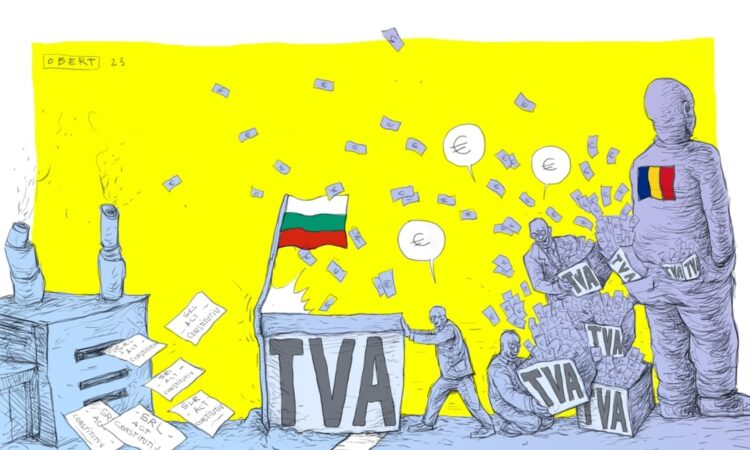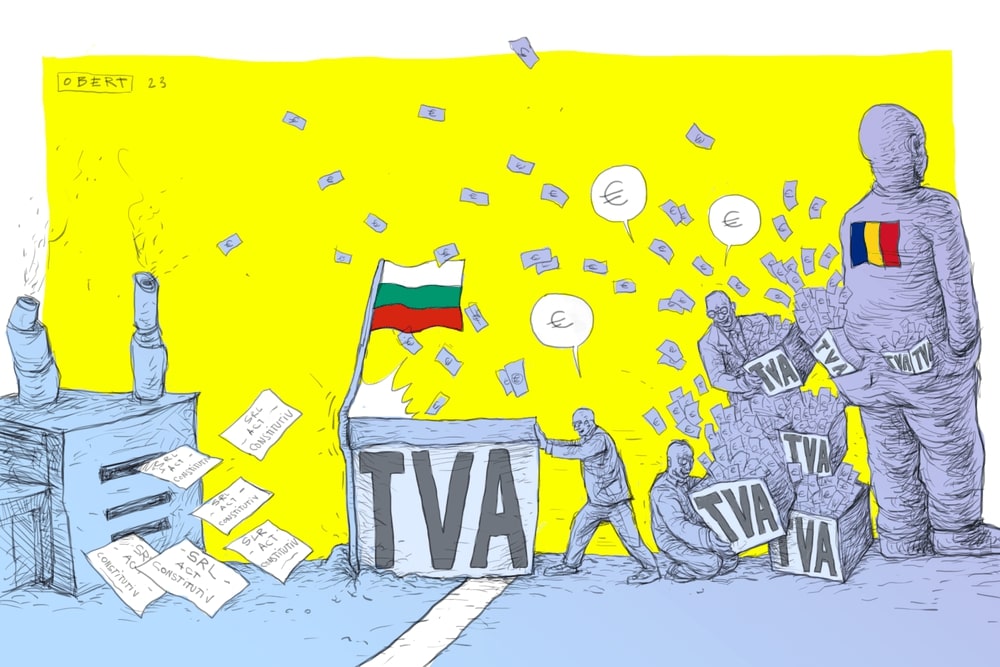
Financial consultants in the Bulgarian city of Ruse, bordering Romania, have been assisting Romanian businesspeople in committing VAT fraud and, in some instances, embezzling funds from the European Union, of which both countries are members.
 Bulgarian financial consultants helped Romanian businesspeople in committing VAT fraud, sometimes even misusing the EU funds. (Photo: Context.ro)OCCRP partner Context uncovered the scam in collaboration with journalists from the Bulgarian platform BIRD. The investigation revealed the use of the “missing trader intra-community” method (MTIC), exploiting zero tax rules for trade between EU members by creating fictitious exports.
Bulgarian financial consultants helped Romanian businesspeople in committing VAT fraud, sometimes even misusing the EU funds. (Photo: Context.ro)OCCRP partner Context uncovered the scam in collaboration with journalists from the Bulgarian platform BIRD. The investigation revealed the use of the “missing trader intra-community” method (MTIC), exploiting zero tax rules for trade between EU members by creating fictitious exports.
Perpetrators typically establish one or more shell companies, engaging in VAT-free trade between EU countries. This involves importing goods VAT-free, selling them domestically, charging local buyers VAT without remitting the value to tax authorities. The importing firm commits fraud, closes, and evades legal action.
MTIC is one of the most common forms of tax evasion in the EU, costing nearly 50 billion euros annually, according to Europol. The scheme negatively impacts Romania’s state budget and hampers necessary development projects.
Romanian prosecutor Laura Codruta Kovesi, Head of the European Public Prosecutor’s Office, stated that cross-border tax evasion has been tolerated and ignored by many EU states for years. Kovesi emphasized the consequences, noting that without the necessary funds in Romania, essential services suffer.
A 2023 European Commission report on VAT collection revealed that Romania has the largest VAT gap among member states, failing to collect 36.7% of expected contributions in 2021. In comparison, Germany, with an economy 15 times larger, left only 7.5 billion euro uncollected.
The investigation found that Ruse-based consultants aided Romanian businesspeople in setting up firms in Bulgaria, offering headquarters and identifying socially vulnerable individuals to front the companies for minimal payment.
The three most prolific consultants discovered had established hundreds of shell firms. One consultant, boasting a “Tax haven in the EU” on their website, set up 230 firms. Eight of these firms, controlled by entrepreneurs in Romania, were involved in significant tax frauds. Some participated in embezzling European Structural and Investment Funds by inflating the value of imported goods.
One scheme involved overvaluing machinery exports between a Chinese exporter and a Romanian manufacturer, leading to the embezzlement of almost one million euros. Romania’s national tax collection authority identified 140 fraud cases involving Bulgarian companies over the past decade, causing damages exceeding 250 million euros.
Amid financial struggles, the Romanian government considered measures like tax increases and spending freezes. Kovesi emphasized the importance of prioritizing the fight against organized crime, stating that cutting off their funding is crucial to combating crimes such as drug trafficking.






